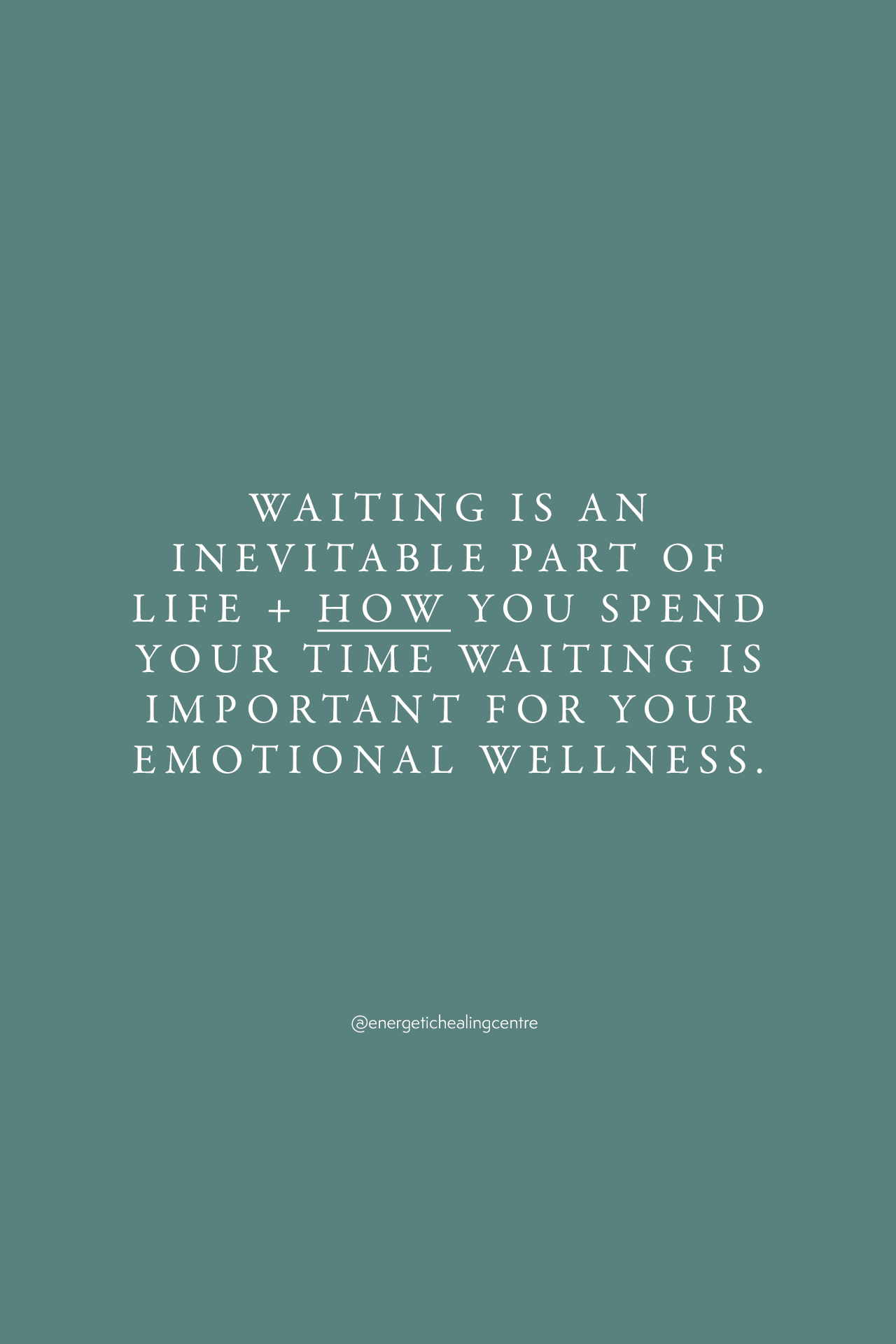Let’s start with the basics. Impatience is when you become irritable or restless when things are not going your way or as quickly as you would like them to. Patience is the ability to stay calm while you’re waiting for an outcome that you need or want. Which are you most familiar with?
We all experience impatience from time to time… But has it become a regular thing for you? Are you always rushing yourself and others, frustrated with delays, angry the minute something goes different than planned, making rash or impulsive decisions and showing visible agitation?
For example, if you’re waiting in a line or traffic that’s moving slowly are you annoyed and fidgety the whole time, grumbling and complaining to whoever will listen? Or could you listen to a podcast, music or read a book to kill time in peace?
In today’s fast paced world of technology, we’ve become accustomed to instant gratification and instant access, which makes being patient more trying than ever. It’s human to feel upset when you’re experiencing delay or a change in plans but having self control about how you’re experiencing and expressing your frustration makes a world of difference for yourself and others. Practicing self awareness and trying the suggestions below can help you experience more patience and peace.
Waiting is an inevitable part of life and the quality of how you spend your time waiting is important for your emotional wellness.
Tips to cope with impatience
Journal Prompts for Patience
- How does your body feel when you’re impatient?
- What thoughts do you have when you’re impatient?
- What emotions do you have when you’re impatient?
- Notice yourself becoming impatient during the day. Make a list of what you notice. When does it come about? How often?
- Does the impatience you experience have to do with time management?
- If yes, how can you manage your time better?
- What triggers your impatience? Certain people, certain places, activities, situations?
- Does it lead to anger, sadness, anxiety, guilt?
- What are alternative responses you can have the next time you feel impatient?
- Are you patient with yourself?
- How does impatience impact your relationships with others?
- Practice waiting peacefully. What can you do while you wait that will help you feel more calm and accepting about waiting? Write down a list of healthy, helpful distractions.
Affirmations for Patience
- “I gently release expectations”
- “I feel content to wait”
- “I honor the time it takes for everything to manifest”
- “Everything I need comes to me exactly at the right moment”
- “I am patient with results”
- “I am thankful for my ability to wait patiently”
- “I have patience with myself”
- “My patience keeps me calm”
- “I release the need to be in control”
- “I choose to wait patiently”
Mindfulness
Practice noticing the impatience without reacting to it.
Breathe Deeply
Breathing connects us to the present moment. Take slow deep breaths, focusing on the sensation (how does it feel as you breathe?). Being in the present moment helps us feel more relaxed.
Transpersonal Energy Healing
This is one of the healing modalities I use to help my clients. A combination of Body Mind Counseling and Hands on healing. Helps to uncover limiting beliefs, release stored emotions in the body and balance and relax the energy and nervous systems.
Bach Flower Therapy
Try the Bach Flower Remedy Impatiens. This is another healing modality that I use to help my clients. I offer 1:1 sessions, but the Bach Flower Remedies were created as a self help system so anyone can access and use them with ease.
(Don’t know what Bach Flower Remedies are? Check out my 8 minute video What are Bach Flower Remedies?)
All of the tips above help you practice self awareness, so you know your triggers. Going forward, create a plan that can help you move through circumstances and unexpected delays with others, your goals and daily trivial issues with more acceptance and patience.
“Nature does not hurry yet everything is accomplished.” – Lao Tzu, Tao Te Ching


